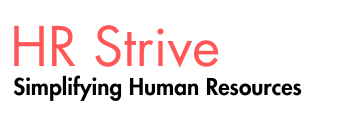Strong working relationships are grounded in trust, transparency, and mutual respect. While individuals may pursue their own goals within the workplace, a healthy relationship is not used as a tool to manipulate or undermine others’ values or interests.
Effective professional relationships are reciprocal. Both parties benefit from the connection—through learning, support, or shared insight. As relationships develop over time, so does the ease of communication and conflict resolution.
Guidelines for Building Effective Work Relationships
Ways to Cultivate Healthy Work Relationships
-
Embrace diversity in the individuals you build relationships with—across age, gender, cultural background, discipline, and expertise. This promotes broader perspectives and richer understanding.
-
Invest time and care in maintaining relationships. Even in the absence of an immediate need, proactive engagement builds a supportive network you may draw on later.
-
Be comfortable engaging in informal conversation. Small talk—sparked by shared interests or personal references—can create rapport.
-
Share appropriately about yourself without steering every conversation back to your own experiences.
-
Show genuine interest in others, asking thoughtful (but not intrusive) questions.
-
Respect people’s time and priorities. Choose the right moment for deeper discussions or requests.
Building Trust in the Workplace
Trust is often associated with qualities like honesty, dependability, and consistency. It is earned through repeated actions over time, not through a single interaction. When trust is present, disagreements are easier to resolve, and negotiations progress more smoothly toward win-win outcomes.
Trust can be a core organizational value that enhances relationships across all stakeholder groups. HR plays a key role in both modeling trust-building behaviors and fostering them throughout the organization.
Trust grows when people demonstrate:
-
Emotional intelligence (EI): the capacity to understand and manage one’s own emotions and respond effectively to the emotions of others. EI helps bridge differences—cultural, generational, or otherwise—and turns diversity into strength.
-
Authenticity and vulnerability: By being open and real (even when uncomfortable), individuals show that they are trustworthy and not hiding behind a facade.
-
Relatability: When others see common traits or values, they are more inclined to trust and collaborate.
Traits That Foster Trust (Based on Robert Hurley’s Research)
Building trust involves more than being honest. People are more likely to trust someone when they perceive these characteristics:
-
Shared values: People trust those who reflect beliefs or standards similar to their own.
-
Common goals: When individuals pursue aligned outcomes, they are more likely to find common ground.
-
Benevolence: Trust is stronger when someone shows sincere concern for others’ welfare—not just their own success.
-
Competence: People must have confidence that someone can deliver what they promise. Repeated failure or overpromising damages trust.
-
Integrity and consistency: Trustworthy individuals align their words with their actions. Sporadic integrity is not enough—it must be consistent.
-
Effective communication: People who are open, who listen actively, and who engage in honest dialogue foster trust. They are transparent and responsive, and they seek feedback.

No comments:
Post a Comment